10 June 2024Published on 10 January 2024
6 minute read
Written by:

Carl Robinson
Content Manager
What is an air source heat pump?
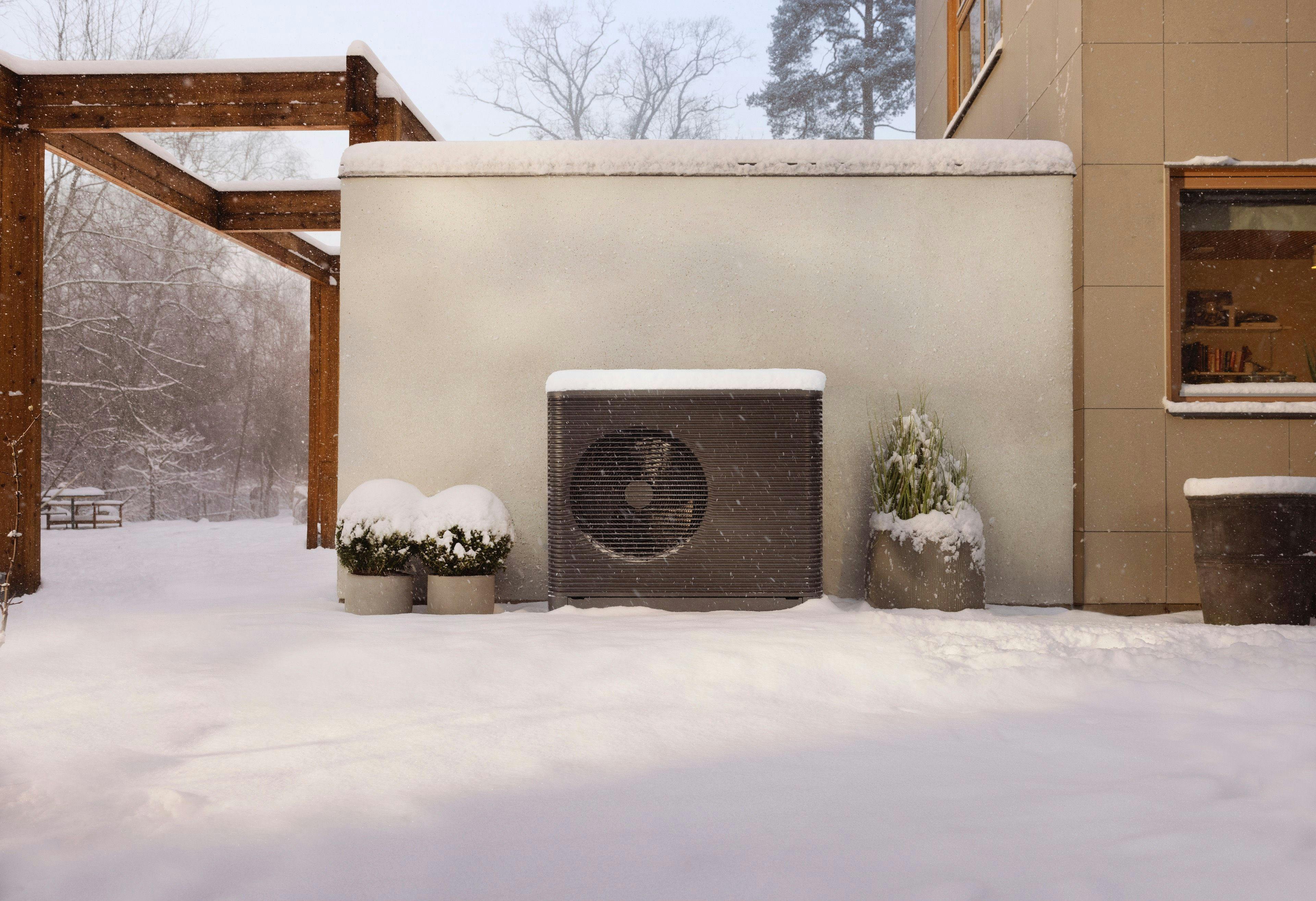
Air source heat pumps are a smarter, cleaner way to heat your home. They’re energy-efficient, better for the planet, and already trusted in millions of homes across Europe. And with energy prices rising, more and more households in the UK are making the switch.
But how do they actually work? How can something so efficient also be cost-effective? And is an air source heat pump the right choice for your home?
What is an air source heat pump?
An air source heat pump captures free, renewable heat from the air outside (even in sub-zero temperatures) and uses it to warm your home. It only needs a small amount of electricity to do this, making it up to four times more efficient than a traditional gas boiler.
By switching to an air source heat pump, you can cut your CO₂ emissions by up to 100% and reduce your energy bills by up to £490 a year. See how much you could save.
How does an air source heat pump work?

It might sound high-tech, but the process is surprisingly straightforward. Think of it as a fridge in reverse: instead of removing heat from inside, it brings warmth into your home.
Step 1: Heat absorption and evaporation
The outdoor unit draws in air and extracts heat from it. This heat warms a refrigerant, turning it from liquid to gas.
Step 2: Compression and condensation
The gas is compressed, increasing its temperature. It then moves into a condenser, where it turns back into a liquid.
Step 3 — Heat exchange
The hot liquid passes through a heat exchanger, transferring its heat to your home's heating system.
Step 4 — Cooling and expansion valve
The refrigerant cools down and returns to its original state, ready to start the cycle again.
Watch how an air source heat pump works
What are the types of air source heat pumps?
There are three main types of air source heat pumps, each suited to different needs:
Air to water heat pump
An air to water heat pump, like the Aira Heat Pump, heats water, which then warms your home via radiators or underfloor heating. It's the type supported by the government's Boiler Upgrade Scheme.
Air to air heat pump
Instead of heating water, this system blows warm air into your home. It can also cool your home in summer.
Hybrid heat pump
This combines a heat pump with a traditional boiler, ideal for homes with higher heating demands.
The benefits of an air source heat pump
An air source heat pump reduces your energy bills and your impact on the planet. If you switch your gas boiler to an air source heat pump with Aira you can:
- Save up to £490 on your annual energy bills
- Never pay another gas heating bill again
- Cut your reliance on energy providers
- Reduce your home heating carbon emissions by 100%
- Add up to £8,000 to the value of your property
- Enjoy an appliance that outlives standard gas boilers (15-20 years)
What are the disadvantages of an air source heat pump?
While there are many benefits, it’s important to factor in the following:
- Upfront cost: Heat pumps can be more expensive initially, but the £7,500 Boiler Upgrade Scheme grant can significantly reduce this.
- Space requirements: You'll need space for the outdoor unit. Our Clean Energy Experts will assess your home's suitability during our free home energy assessment. They will also advise on any simple changes that would make your home heat pump ready, like installing new radiators.
- Insulation: For optimal performance, good insulation is essential. We offer home insulation services to help prepare your home.
Explore more about the pros and cons of an air source heat pump.
How much does an air source heat pump cost?

The cost of installing an air source heat pump is dependent on a variety of factors, so there’s no one-size-fits-all price. The total cost of a heat pump can vary based on the size of your home, the total area that needs to be heated, your heating requirements and your home’s heating infrastructure.
For our complete air source heat pump system (including design and installation):
- Installation and system: Around £14,000.
- After £7,500 grant: Approximately £6,500
Over 20 years, this investment can be more cost-effective than maintaining a gas boiler. Use our heat pump cost and savings page to get an idea of how much an air to water heat pump may cost..
What is the UK government's air source heat pump grant?
The UK government is offering a Boiler Upgrade Scheme (or ‘BUS’ for short); a £7,500 grant for homeowners who replace their gas boilers with a clean energy heat pump. When you get an air source heat pump with Aira, we'll handle the application on your behalf and deduct it from your quote.
What’s more, any clean energy improvements you make to your home, like switching to a heat pump, are currently VAT-free until 31st March 2027. That cuts a hefty 20% off the cost of having an eco-friendlier household.
And, in Scotland, the Home Energy Scotland Grant and Loan provides a £7,500 grant and an additional £7,500 interest-free loan. This means you can get an Aira Heat Pump from as little as £62.50 per month.*
Air source heat pump running costs
Running costs are typically lower than traditional systems. For a three-bedroom semi-detached house, you could save up to £400-£500 annually compared to a gas boiler.
Explore a detailed breakdown of how much it costs to run an air source heat pump.
Is an air source heat pump right for you?

If your current heating system is getting old or if you’re sick of the constant maintenance and high energy prices associated with it, it could be the perfect time to switch to a clean-energy air source heat pump.
You don’t need a lot of outdoor space to have the outdoor unit of a heat pump installed. For the indoor unit, you will need to ensure you have an interior space roughly the size of a conventional gas boiler (0.7m height x 0.3m depth x 0.4m width) and, depending on the model you are provided, an additional space for a buffer tank.
How efficient are air source heat pumps?
An air source heat pump’s Coefficient of Performance (COP) is perhaps the best unit of measurement to demonstrate how efficient a heat pump is. COP refers to the ratio of energy used compared to heat produced. The higher the ratio, the more efficient the appliance is.
In mild weather, the COP for an average heat pump is around 4.0, meaning for every one unit of energy used, four units of energy are provided. When the temperature drops, the heat pump has to work harder, so the COP falls to around 2.5 to 2.8. Even at these levels, a heat pump is still far more efficient than a gas boiler, which typically has a COP of around 0.9.
Why switch to an air source heat pump with Aira?

The way we heat and power our homes hasn’t changed for decades. But these methods are not only costly, but bad for the environment too. With an air source heat pump, there’s no more relying on fossil fuels and no more eye-watering heating costs. Just hassle-free clean energy-tech that’s affordable and sustainable.
With around 20 million heat pumps already installed across Europe, the drive for clean energy is relentless and at the forefront of this energy revolution is Aira. We are a modern energy-tech company dedicated to providing clean and cheaper energy for every home.
We make switching to an air source heat pump affordable and hassle-free by taking care of the entire process, from providing a home energy assessment and seamless installation. Everything's included, and it's all under one roof.
Get a no-obligation heat pump quote and join the clean energy-tech revolution today.
* Home Energy Scotland monthly payment of £62.50 is based on a Home Energy Scotland 10-year plan for a 6KW Aira Heat Pump, standard installation complexity and an upfront cost of £229. Your quote may vary as Aira quotes are tailored based on various factors
What type of house do you live in?
Keep learning
Similar articles to expand your knowledge
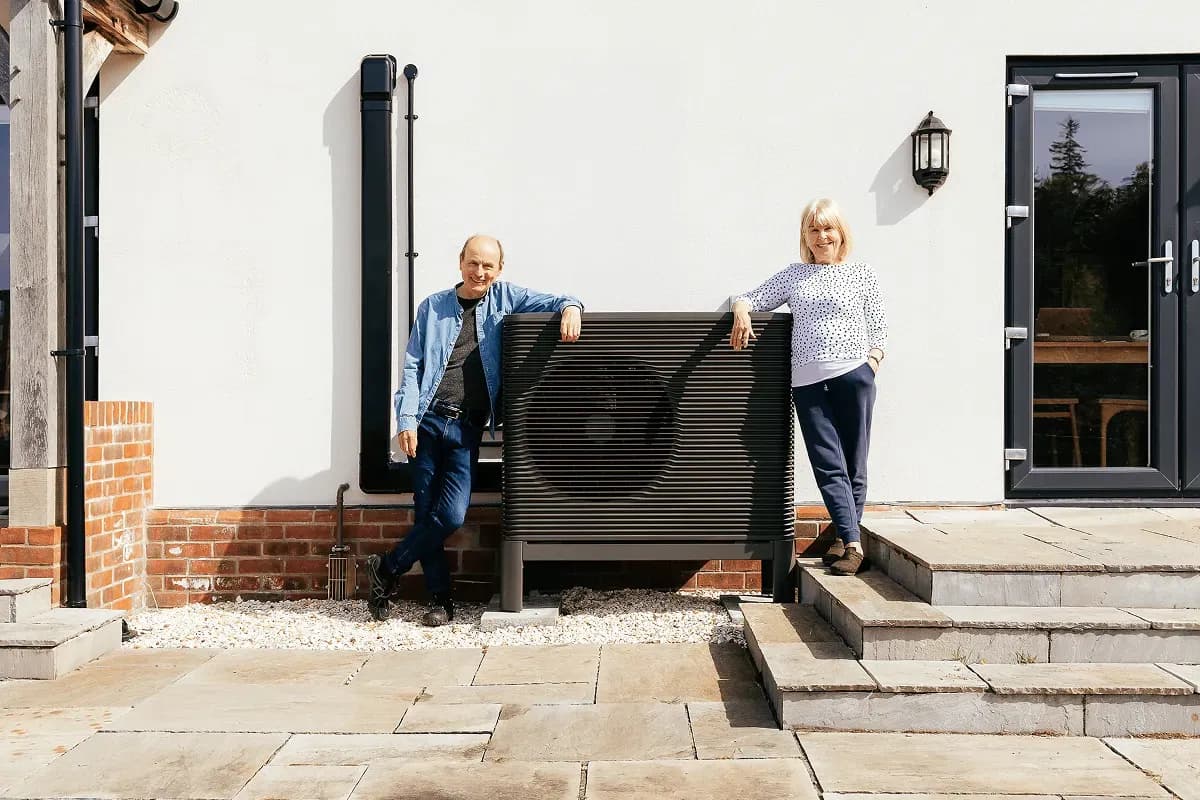
Published today
Carl RobinsonHow to protect your home from rising energy costs
If you've opened an energy bill recently and felt a knot in your stomach, you're not alone. Millions of UK households are in the same position. Prices that felt manageable a few years ago have been replaced by a new normal that feels anything but. And with energy price cap predictions dominating the headlines every quarter, it's easy to feel like you're just waiting for the next hit. Here's the thing, though: you're not powerless. You can't control what happens in global energy markets. But you can control how exposed your home is to them. This guide walks through exactly how – starting with the change that makes the biggest difference.

Published at 22 Feb 2026
Carl RobinsonWhy your heat pump bills might be higher than expected
Heat pumps are incredibly efficient, but their performance depends on the whole home. When the system is designed correctly and paired with the right settings and tariff, that’s when the real savings appear.
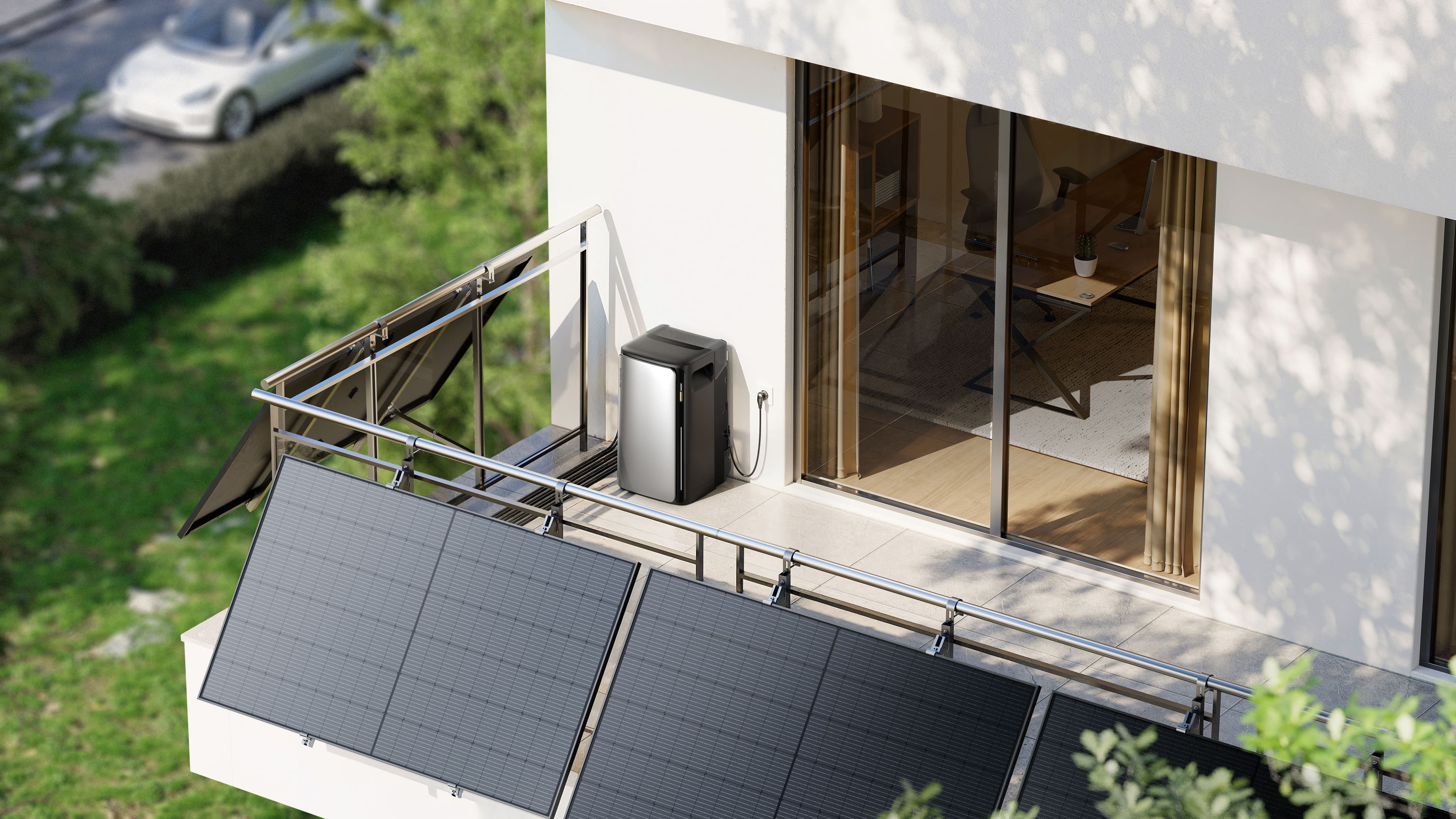
Published at 22 Feb 2026
Carl RobinsonHeat pump and battery storage: the ideal combination for your home
Energy prices are unpredictable. And more homeowners want control. The idea of a self-sufficient home – one that generates, stores and uses its own clean energy – isn’t futuristic anymore. It’s possible today. One of the smartest ways to get there? Combine a heat pump with a home battery.
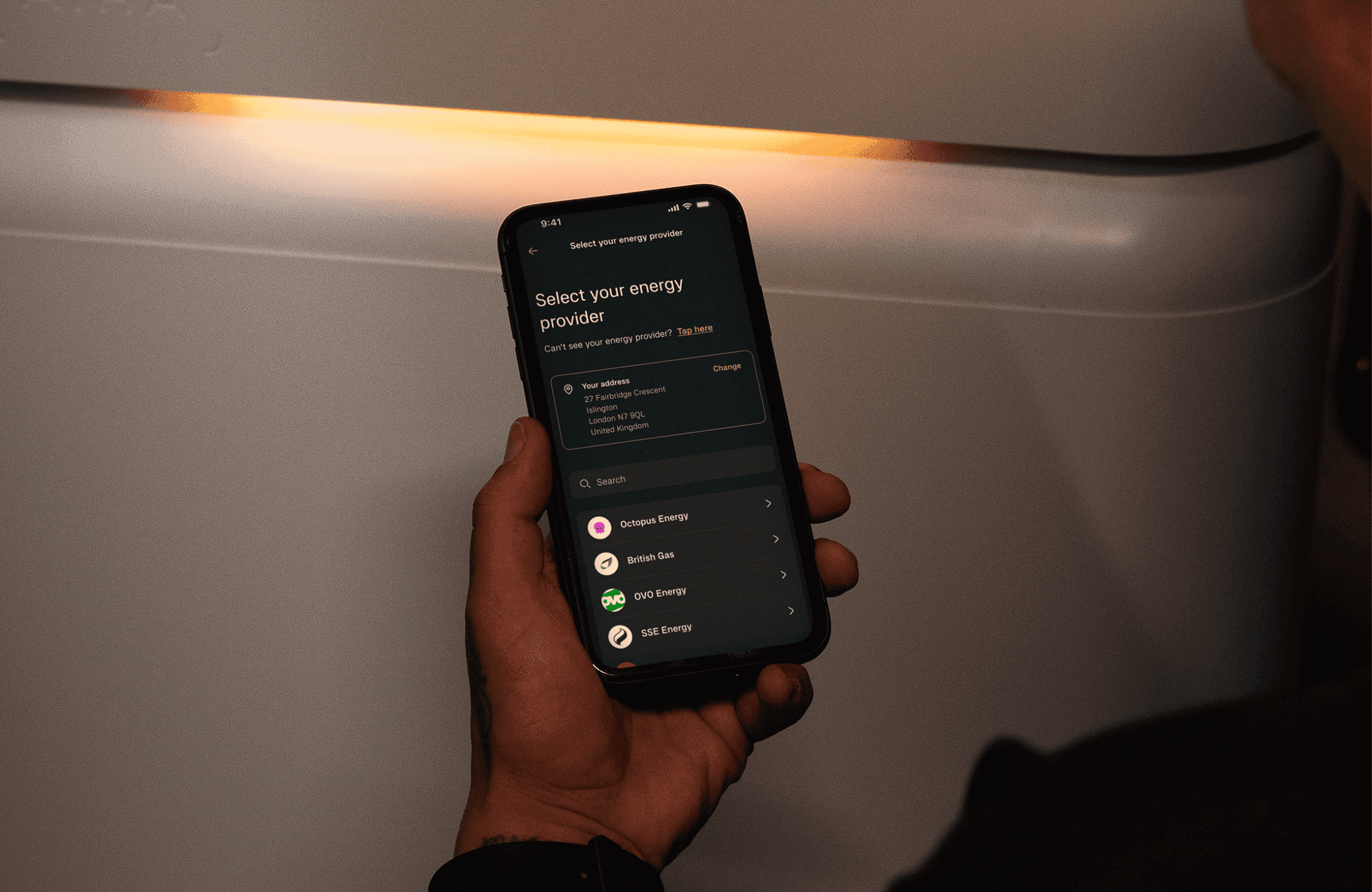
Published at 17 Feb 2026
Carl RobinsonWhy tariff flexibility matters for heat pump savings
Heat pump savings don’t just depend on the technology or your heating needs. They also depend on your tariff. As energy prices shift and new products enter the market, flexibility becomes essential. Discover why choosing a system that can optimise against any tariff protects your savings long term.

Published at 27 Jan 2026
Carl RobinsonThe Warm Homes Plan: what it really means for your energy bills
The UK’s new Warm Homes Plan confirms one thing: the future of cheaper energy is clean, electric homes. Here’s what the plan really means for homeowners. And how heat pumps, solar and home batteries can cut your bills long before 2030.
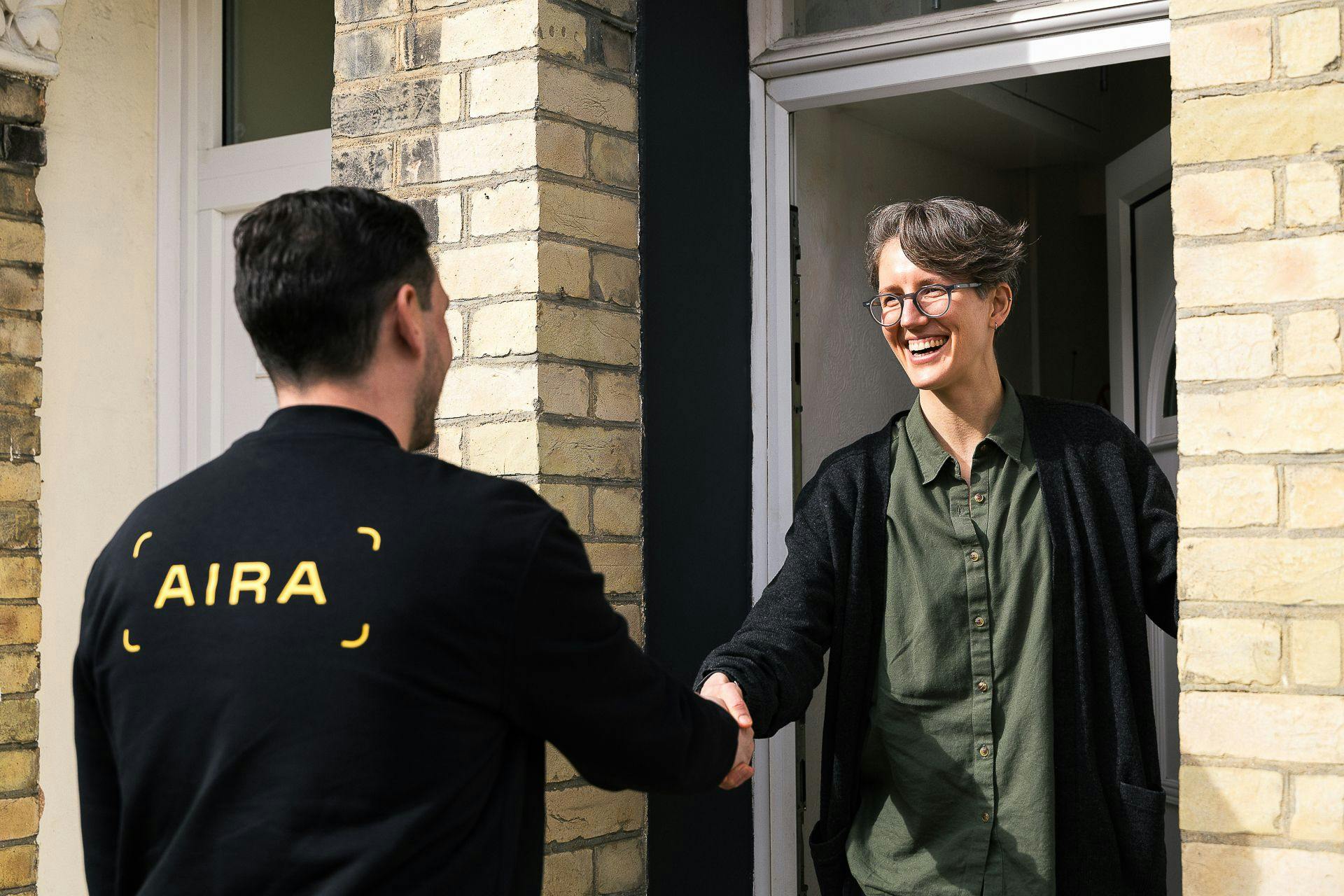
Published at 15 Jan 2026
Carl RobinsonIs a heat pump ideal for your semi-detached home?
Think heat pumps are only for large detached homes? In reality, semi-detached houses are perfectly suited to them. We delve into why heat pumps work so well in these homes and whether yours is ready for the swtich.